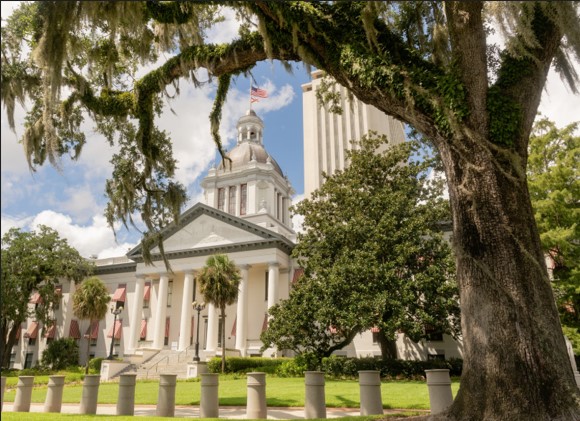Supreme Court Ruling on Student Loan Forgiveness
The U.S. Supreme Court has made a landmark decision regarding the Biden administration’s federal student loan forgiveness program, invalidating it on the grounds that it exceeded executive authority. The ruling, which resulted in a 6-3 split along ideological lines, effectively dismantles a plan that aimed to cancel as much as $20,000 in federal student loans for millions of borrowers burdened by debt. This decision marks a pivotal moment in the ongoing discussions surrounding higher education financing and the federal government’s role in addressing student debt issues.
Majority Opinion: Overreach of Executive Power
The majority opinion of the court was penned by Chief Justice John Roberts, who argued that the student loan forgiveness initiative constituted an overreach of executive power. Roberts asserted that such critical economic and political decisions need to originate in Congress rather than being unilaterally enacted by the executive branch. He emphasized, “The separation of powers is a foundational principle of our Constitution,” indicating that procedures for significant fiscal actions should be overseen by elected lawmakers with appropriate authority.
The Biden Administration’s Justification
To defend its student loan forgiveness program, the Biden administration relied on the Higher Education Relief Opportunities for Students (HEROES) Act of 2003. This legislation was invoked as a rationale for debt cancellation during national emergencies, such as the COVID-19 pandemic. However, the Supreme Court rejected this rationale, contending that the HEROES Act does not grant the broad powers the administration claimed to possess for debt relief programs. This interpretation poses significant implications for future executive actions related to economic relief.
Political Repercussions and Statements
The Supreme Court’s ruling is a substantial setback for President Biden’s efforts to provide meaningful relief to Americans struggling with student debt. In light of the decision, the administration expressed profound disappointment and stated its intention to seek alternative pathways to assist borrowers. President Biden emphasized his commitment to continue advocating for working families who are overwhelmed by student debt, ensuring that their voices remain heard in the ongoing dialogue about financial relief.
Reactions from Advocates and Lawmakers
The reaction to the court’s ruling has stirred a wide spectrum of responses across the political landscape. Advocates in favor of student debt relief condemned the ruling as a blow to economic justice, cautioning that it will intensify financial struggles for countless Americans. One organizer from a leading advocacy group remarked, “This is a devastating setback for economic justice,” underscoring the potential impact on individuals and families burdened by loans.
Conversely, conservative lawmakers have praised the Supreme Court’s decision as a triumph for fiscal responsibility and adherence to constitutional principles. Senate Minority Leader Mitch McConnell characterized the verdict as a reassertion of the necessity for legislative oversight regarding taxpayer spending, asserting that taxpayers should not bear financial burdens without appropriate checks and balances from Congress.
Implications for Borrowers and Future Elections
In the aftermath of this ruling, borrowers are now bracing themselves for the reinstatement of loan payments, as federal relief measures have been halted. Analysts anticipate that this decision will catalyze robust discussions about the role of the federal government in addressing the nation’s escalating student debt crisis, particularly as the 2024 presidential election approaches. This ongoing debate is expected to influence political campaigns and policy proposals as candidates navigate their positions on education and financial reform.
Conclusion
The recent Supreme Court ruling regarding the Biden administration’s student loan forgiveness program presents a complex and contentious chapter in the broader conversation about student debt in America. By asserting that such a program required Congressional approval, the decision emphasizes the constitutional principle of separation of powers while igniting significant dialogue surrounding educational financing. Moving forward, the ramifications of this ruling will likely affect millions of borrowers, influence political strategies, and shape future legislation in an era where student debt continues to be a pressing national issue.
FAQs
What was the federal student loan forgiveness program proposed by the Biden administration?
The program aimed to cancel up to $20,000 in federal student loan debt for eligible borrowers, particularly in response to financial hardships exacerbated by the COVID-19 pandemic.
Why did the Supreme Court rule against the student loan forgiveness program?
The Supreme Court ruled that the program constituted an overreach of executive authority, emphasizing that such significant fiscal decisions should originate from Congress, not be unilaterally decided by the executive branch.
What could be the implications of this ruling for borrowers?
With the termination of the forgiveness program, many borrowers are expected to resume repayments on their student loans, which might lead to increased financial strain for individuals and families already facing economic difficulties.
How have political leaders reacted to the Supreme Court’s decision?
Reactions have been polarized, with advocates for student debt relief expressing strong disappointment, asserting the ruling will harm millions, while conservative lawmakers celebrated it as a victory for fiscal responsibility and constitutional governance.
What alternatives might the Biden administration explore following this ruling?
The Biden administration indicated it will seek alternative avenues to provide relief for borrowers, although specific strategies have not yet been disclosed. Future actions may involve legislative initiatives or collaboration with state-level programs.

